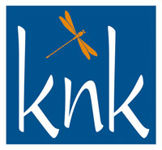
Have you ever met a publisher who hasn’t used the word ‘community’ when talking about their readership?
Perhaps it’s wishful thinking, attributing to a readership a sense of belonging that doesn’t actually exist. Being on the same mailing list as someone does not make you part of the same community.
Yet, in the future, having an engaged community is one of the things that will distinguish successful publishers from, err, less successful ones.
In our special feature on ‘Building Successful Communities’, participating publishers and suppliers share lots of good ideas on how you can help build one of your own.
So, what are some of the attributes of a successful community?
- Community members will know they’re in it. I’m reminded of the anti-hunting line, about hunting not being a sport, on the basis that only one side knows a game is being played. Similarly, a community is not a community if only the moderator knows they’re in it.
- Community members will have the means to interact easily with each other, without you being in the room. Communication will be many to many and will take place independently of you. You to them, them to you, and, more importantly, them to them.
- The community will have a life of its own. Conversations will be happening continuously and will not necessarily have anything to do with your marketing priorities.
- Community needs will come first. If the sole reason for trying to set up a community is to sell more copies of your magazine, don’t be surprised if it fails to gain traction. Communities exist to provide honest support and advice. Members need to be able to ask questions and not expect you to always be the answer.
Essentially, a successful community can’t be all about you. If your involvement in conversations is dictated by your publishing schedule, then warning lights should start to flicker. Community members, within reason, don’t care about your schedule. They care about their needs.
Conversations will be happening continuously and will not necessarily have anything to do with your marketing priorities.
This article was first published in InPublishing magazine. If you would like to be added to the free mailing list, please register here.












